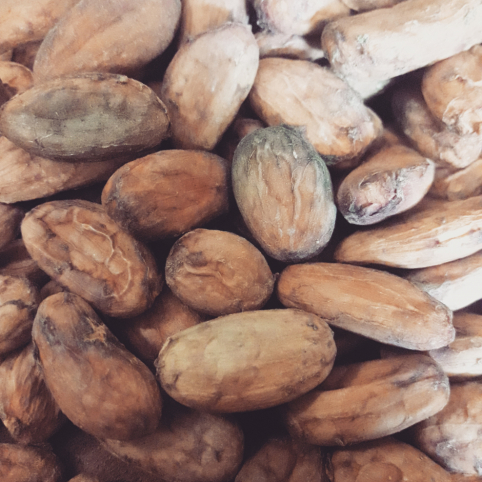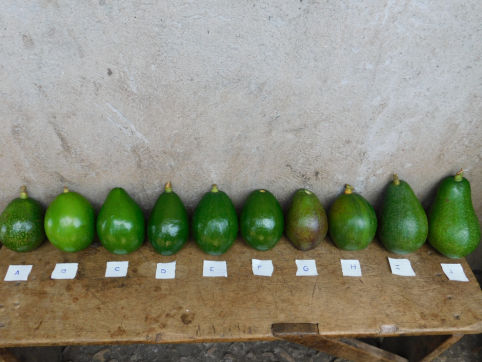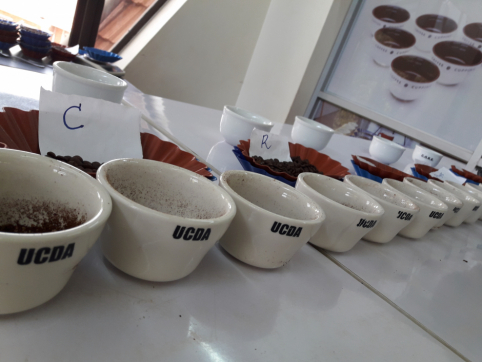 Arabica (Washed) Coffee - Green Beans from Uganda
Arabica (Washed) Coffee - Green Beans from Uganda
Couldn't find the product you want?
Fill out this form to request the product.
Export from Uganda
Uganda's economy generates export income from coffee ($466.6 million annually), tea, fish, and other products. The country has commenced economic reforms and growth has been robust.
The country has substantial natural resources, including fertile soils, regular rainfall, and sizeable mineral deposits of copper and cobalt. It has largely untapped reserves of both crude oil and natural gas. Agriculture is the most important sector of the economy, employing over two-thirds of the work force. Coffee accounts for the bulk of export revenues.
Traditionally depending on Kenya for access to the Indian Ocean port of Mombasa, Uganda makes efforts to establish a second access route to the sea via the lakeside ports of Bukasa in Uganda and Musoma in Tanzania, connected by railway to Arusha in the Tanzanian interior and to the port of Tanga on the Indian Ocean. Uganda is a member of the East African Community and a potential member of the planned East African Federation.
Uganda exports agricultural products (80 percent of total exports). The most important export of Uganda is coffee followed by tea, cotton, copper, oil, fish, raw tobacco, refined petroleum, fish fillets and cement.
Main export partners of Uganda are Sudan, Kenya, DR Congo, Netherlands, Germany, South Africa and UAE.
Import to Uganda
The economy of Uganda has great potential, and it appeared poised for rapid economic growth and development. Uganda is a member of the World Trade Organization.
Most industry is related to agriculture. Rich with significant natural resources, including ample fertile land, regular rainfall, and mineral deposits, it is thought that Uganda could feed all of Africa if it were commercially farmed.
The industrial sector is being rehabilitated to resume production of building and construction materials, such as cement, reinforcing rods, corrugated roofing sheets, and paint. Domestically produced consumer goods include plastics, soap, cork, beer, and soft drinks. Major Cement manufacturers like 'Tororo Cement Ltd' caters to the need of building and construction material consumers across East Africa.
Uganda imports mainly oil (24 percent of total imports) followed by pharmaceutical products, capital goods, cars, palm oil and telephones.
Uganda’s main import partners are Kenya, UAE, Japan, China and India.
Buy Bulk Food at Export Portal's Food and Agricultural Produce Shop
From cocoa, chocolate, and snack foods to honey, wine, and organic foods, there are thousands of delicious products waiting for you at Export Portal's Food and Agricultural Produce Section. We are one of the biggest online stores out there, and we carry only the freshest, high-quality food products. Our wide selection of products from reliable wholesalers, exporters, producers, and suppliers are bound to keep you healthy and full!
Discover New Foods With Us
Get ready to embark on an exciting journey with Export Portal! On our site, you can discover and explore new foods and flavors from different countries like China, America, France, Spain, Italy, India, Egypt, and many more. You can find various ingredients to create your favorite international dishes on our site. You can even buy or sell bulk canned goods, vegetables, fruits, meat products, nuts, and sugar!
You can also experience a variety of Italian food and beverages, such as pasta, dried herbs, famous Italian cheeses, extra virgin olive oils, and coffee. To get a taste of the East, try our vast array of spices that includes ginger, pepper, cinnamon, curry powder, cumin, and coriander. Our range of Chinese noodles, wasabi, or tofu can also help you recreate some of your favorite Chinese meals! But if none of these sound appealing to you, you can also search our selection of black beans, whole wheat flour, coconut flour, stevia, chia seeds, green or white tea, healthy olive, and coconut oils for a healthy alternative.
Online Shopping Made Much Easier
We try our best to ensure your online shopping experience with our Food and Agricultural Online Store is 100% satisfactory. Whatever you are looking for, we will make sure you can find it on our site. Discover various international foods on Export Portal today!
Customs requirements of Uganda
Uganda Customs Contacts
Website: http://www.ura.go.ug/
Email: info@ura.go.ug
Address: Plot 2/12 Apollo Kaggwa Road, P.O.Box 8147 Kampala
Telephone: +2562414707000
Uganda is a landlocked country situated in East Africa, bordered by Kenya, South Sudan, Congo, Rwanda and Tanzania. It is the world's second most populous landlocked country after Ethiopia. The country is a member of the African, Caribbean, and Pacific Group of States, Common Market for Eastern and Southern Africa (COMESA), East African Community, World Customs Organization, World Trade Organization and other international organizations.
Tariffs
Uganda is a member of the East African Community customs union along with Burundi, Kenya, Rwanda and Tanzania, thus applying customs tariffs, rules of origin, import prohibitions, and trade regulations of this community.
Uganda applies the EAC common external tariff (CET) on the c.i.f. (cost, insurance and freight) value of imports.
A VAT is levied at a standard rate of 18% on the sale price of locally produced goods and services, and on the customs-duty inclusive c.i.f. value of imports.
Products certification
Import certificates, issued by the Ministry of Tourism, Trade and Industry, are required for goods on the ‘negative list’, such as used tyres and certain types of battery.
Importers are required to mark shipments with:
- importer/exporter name
- consignee
- flight/vehicle details
- place of discharge
- number of packages
- container identity
- description of goods
- airway bill number/bill of lading
- county of origin/destination
Import documents
1. A Customs Bill of Entry duly completed and signed by a Customs Agent.
2. Other documents related to the purchase and importation of the goods such as:
- Commercial Invoice
- Bill of Lading (for Imports by Sea)
- Airway Bill (for imports by air)
- Railway consignment note (for imports by rail)
- Freight Invoice
- Insurance certificate (if goods were insured)
- Proforma Invoice
- Certificate of Origin
- Permits (if necessary)
- Original and translated certificates of cancellation or permanent export for motor vehicles
- Road transit Customs Document (Commonly known as C63) prepared at seaport and entry port in Uganda.
- URA Form 1 for Motor vehicles
Please note that on top of the General documents, there are some which are required for the clearance of particular goods through customs.
These are:
1) Flowers, fruits, vegetables and plants:
Phyto-sanitary certificate
Export license from the Ministry of Agriculture
Certificate of origin from Uganda National Chamber of Commerce and Industry
Movement permit Euro 1 (For exports to Europe)
2) Animals (pets, cats and dogs):
Health certificate from a government Vet certifying that the animal has been free from infectious/contagious diseases seven days prior to dispatch.
Rabies vaccination cert. from Govt. Vet
Valid vaccination cert. for infectious Hepatitis, Canine Distemper, Parvovirus and Leptosprosis.
3) Precious metals:
License to deal in minerals from the commissioner geological surveys and mines.
Export certificate from Ministry of Tourism, Trade and Industry.
Export permit from the Dept. of Geological Survey and Mines (This specifies the quantity being exported).
4) Fish exports:
Health certificate from Ministry of Agriculture, Animal Industry and Fisheries.
Export certificate from ministry of Tourism, Trade and Industry.
Certificate of origin from UNCCI
Movement Certificate Euro1.
5) Bees and Bee products:
Packaged bees, bee colonies:
Export Permit and National Health Inspection Certificate from Commissioner Livestock Health and Entomology (CLHE)
Bee Products:
Import permit from importing country
Export Permit and National Health Inspection Certificate from CLHE(MAAIF)
Laboratory analysis from UNBS or Chemiphar (U) ltd.
Import Permit from the importing country
6) Game and Trophies:
Permit to export Game Trophies and Wild animals issued by Uganda Wildlife Authority (Ministry of Tourism, Trade and Industry).
7) Hides and Skins:
Export Certificate for Hides and Skins /Veterinary Health Certificate issued by Veterinary Department (Ministry of Animal Industry and Fisheries).
8) Drugs (Human and animal medicine):
License to import that particular drug from NDA
Quality clearance certificate from NDA issued after a sample of the drug has been tested and passed the quality test.
9) Second hand clothing
Fumigation certificate, to show that the goods were fumigated prior to shipment and are free from any vermin’s or disease causing organisms.
10) Coffee and Cotton:
Must have the relevant export permits from the Uganda Coffee and Cotton development authorities before your coffee or cotton can be cleared by Customs for export.
Sources:
http://www.doingbusiness.org/data/exploreeconomies/uganda/trading-across-borders/


